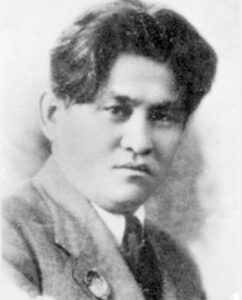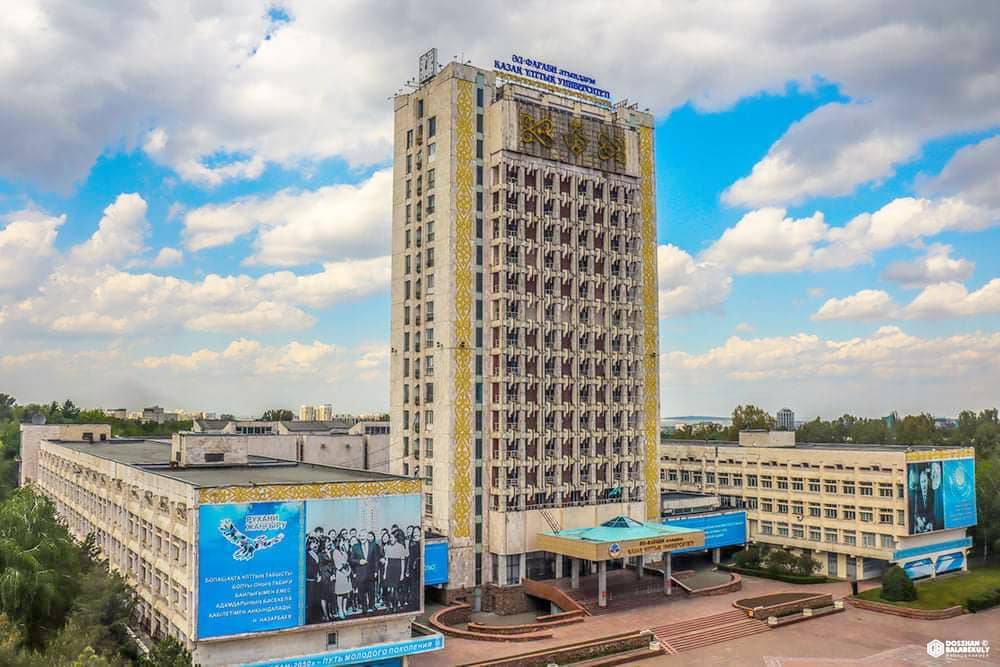ASTANA – Kazakhstan commemorates the 125th anniversary of the Kazakh Soviet statesman Temirbek Zhurgenov, a key architect of Kazakhstan’s educational and cultural landscape. His reforms established a thriving base for Kazakhstan’s current higher education and cultural institutions.

Temirbek Zhurgenov
Early life
Zhurgenov was born in 1898. His father, Kara, was a man of substantial wealth who possessed herds of horses and flocks of sheep. Growing up in a wealthy family allowed Zhurgenov to receive a quality education.
After attending the Russian-Kazakh elementary school, Zhurgenov entered the Ufa land surveying school but did not have a chance to finish due to the start of the сivil war in 1917.
Following a period of work in the Kazakh Muny (Kazakh Concerns) newspaper, he joined a journalism program at Orenburg Workers’ Faculty. He graduated with honors in 1923 and secured admission to the law faculty of the Central Asian State University.
His knowledge of culture, folk epic, and music along with his solid command of Russian, Kazakh, Arabic, Farsi, and old Uzbek languages, distinguished him. Consequently, as a fourth-year student of the Central Asian State University, he was the unequivocal choice for the rector’s role at the inaugural Kazakh Pedagogical Institute, established in Tashkent in 1926 and later relocated to Almaty.
In 1929, Zhurgenov was appointed People’s Commissar of Finance in Tajikistan. The subsequent year saw his appointment as the Commissar of Education in Uzbekistan. These stints became useful when he returned to Kazakhstan in 1933.
Educational reform
Zhurgenov’s legacy brought some of the most substantial developments in the education system in the region. Recognizing the increasing importance of education in reforming Kazakh society, he made relentless efforts to transform the sector from the margins to the mainstream.

Due to Zhurgenov’s efforst several prestigious universities were established across the country in the 1930s, including Al-Farabi Kazakh National University, previously known as KazGU. Photo credit: kaznu.kz
Back in the day, elementary schools were nomadic, and seasonal, with a one to two-year shortened curricula that taught minimal writing, counting, and reading skills. The shortage of specialists and educational supplies coupled with the territorial dispersion of auyls (villages), poor roads, and inadequate transportation created the need for boarding schools.
Appointed as People’s Commissar of Education of the Kazakh Autonomous Soviet Socialist Republic (ASSR), Zhurgenov issued a resolution to eliminate alphabetical illiteracy in 1933, followed by a resolution to introduce a new structure of schools in Kazakhstan with primary, incomplete secondary, and secondary education in 1934.
As a result, 18 secondary schools were established in Almaty alone, some of which are still operating today.
Zhurgenov also sought to expand access to higher education. Several prestigious universities were established across the country in the 1930s, including Kazakh State University (KazGU), a polytechnic university (now Satbayev University), as well as medical, pedagogical, and veterinary universities. Zhurgenov was a pioneer in advocating for education in the native language for Kazakhs and took measures to safeguard the interests of other nationalities.
Zhurgenov’s contribution to Kazakh culture
Alongside his educational reform, Zhurgenov was a man who embraced culture and history. His tenure was marked by the creation of professional arts, which previously did not exist in the Kazakh steppe, such as circus, ballet, painting, and cinema.

Zhurgenov oversaw the opening of the Abai Kazakh National Opera and Ballet Theater in 1934. Photo credit: gatob.kz
In 1934, a film studio was established in Almaty, which, in collaboration with Lenfilm, produced the first Kazakh feature film “Amangeldy” in 1938.
That same year, the musical theater, now known as the Abai Kazakh National Opera and Ballet Theater, was inaugurated. It stands as one of the earliest dedicated performance venues in the country. Its premiere performance was the Kazakh opera “Kyz-Zhibek” composed by Yevgeny Brusilovsky. The lead role was entrusted to the 22-year-old singer Kulyash Baiseitova, who just two years later earned the title of People’s Artist of the USSR.
Zhurgenov oversaw the opening of Kazakh and Russian dramatic theaters and music schools in each region. Almaty saw the opening of its first Uighur drama theater, puppet theater, circus, art gallery, and the Vostok cinema studio.
In the five years that he headed the People’s Commission, the number of theaters in the country increased from six to 26. Half of them staged productions in the Kazakh language.
Zhurgenov also took a leading role in developing the Kazakh ballet culture. He invited a choreographer and teacher from the Moscow Bolshoi Theater to establish a school of classical dance in Kazakhstan. Later, a poem by the renowned poet Shakarim Kudaibergenuly about tragic love became the basis for the inaugural Kazakh national ballet, “Kalkaman and Mamyr,” with Shara Zhienkulova in the principal female role.
Decade of Kazakh culture in Moscow
During Zhurgenov’s tenure, Kazakh culture carved a distinct place for itself on the global arts stage.
In 1936, the ten-day celebration of the Kazakh ASSR took place in Moscow. The Kazakh delegation demonstrated the rich heritage of nomads through music and folklore. Zhurgenov was later awarded the Order of the Red Banner of Labor in recognition of his achievements during this period.
Stalinist repressions prevented Zhurgenov from implementing his endeavors. He was executed in 1938, as a perceived enemy of the people. His wife was exiled to the Akmola’s Camp for Wives of Traitors of the Motherland, known as ALZHIR, for eight years.
Today, the Kazakh National Academy of Arts, several schools and colleges in the Kyzylorda Region, as well as streets in Astana and Almaty are named after Zhurgenov, honoring his legacy.

